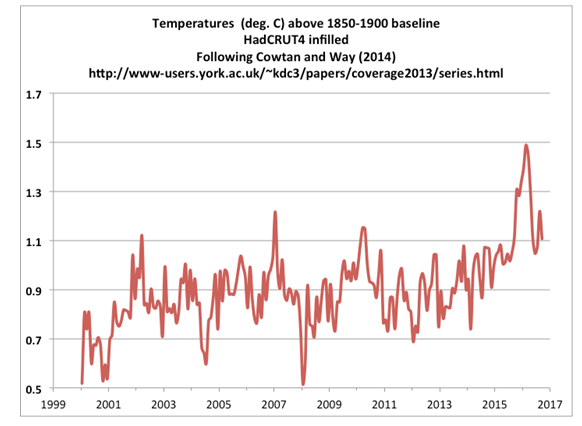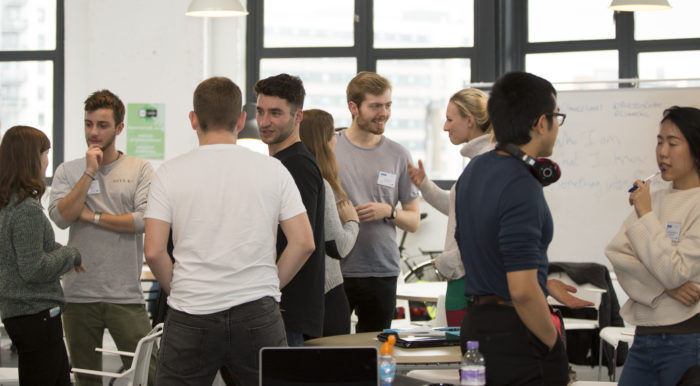The Paris Agreement enters into law today – but is it too little, too late?
Greenhouse gas emissions are still rising. This year atmospheric carbon dioxide levels sailed past 400 parts per million and in January global temperatures were within touching distance of 1.5 deg C above their 1850-1900 levels – the ambitious warming limit set out in the Paris text.
Why then am I optimistic that Paris will work?

Firstly it is already working. On the back of Paris we have seen a global shift away from coal and two substantive international agreements. One agreement freezes international aviation emissions and the other curbs the use of hydrofluorocarbon gases used in air-conditioning and other industries (HFCs).
These agreements do not go far enough. The aviation deal only prevents emission growth – it will not give the emission reduction needed – nor does it account for other warming effects of aviation, especially contrails. The HFC deal lets certain countries off the hook, allowing them to increase production over the next decade.
Yet what makes these deals, and the Paris deal, special is that rich and poor nations worked together. One hundred and ninety nation states are now working to common goals, an unprecedented global consensus.
These deals also change mindsets. Governments, industries and communities acknowledge that “business as usual” is no longer an option. Behaviours are changing. High quality research can guide decisions and help inform how interventions on the ground fit with international targets.
Researchers at the Priestley Centre are rising to this challenge. Last Friday we took part in a 24 hour Climathon to find climate solutions for the city of Leeds, joining a global effort of 59 cities. This was an inspirational event and reinforced the message that, in many situations, communities are better than governments at solving climate change. The challenge set by Leeds City Council – reducing household emissions in age of austerity – was a tough one. But in only a short period, the teams came up with convincing ideas that could make a real difference to the Leeds city region and help the country meet its climate targets.

Participants in the Leeds Climathon working on climate solutions for the city
By critically trailing and testing interventions at all levels good quality research can help society make positive choices towards the Paris goals. We need to speed up action to slow the rate of change so even if we miss the 1.5 C target, we can tell our children we gave it our best shot.
Piers Forster
